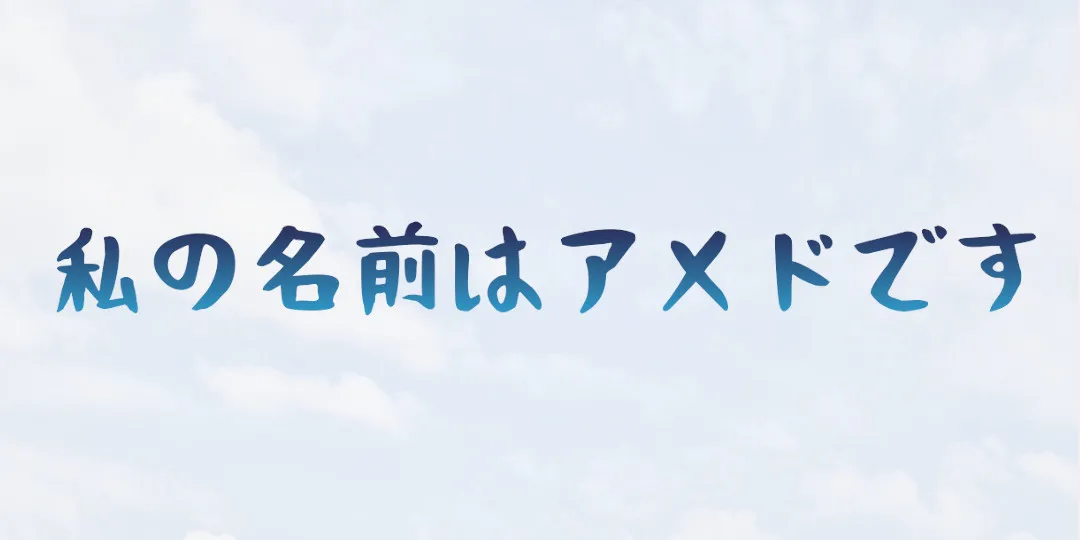私の名前はアメドです (Watashi no Namae Wa Ahmed(Amedo) desu.) The Japanese for: "My name is Ahmad."
(Image is made using FontMeme.com)
Japanese Random Daily Phrase
This series of posts #ahmadlearnsjapanese is a series of posts I'm writing to force myself to learn Japanese. In every post I'll write a different phrase and what/how/when I learned about it.
I'm still learning so, some information in this post series might be wrong! Please double check if you're planning to learn something from these short posts! Also correct me if I was mistaken.
"My Name is Ahmad"
- A crash course on the Arabic name "أحمد" -
This is the sentence that usually follows Hajimemashite upon the first meeting and it's also a phrase I learned early on. The word "name" is usually omitted and the phrase will become: 私はアメドです (Watashi Wa Amedo Desu "I'm Ahmad.")
You might've noticed that I write "Ahmad" as アメド (Amedo) in Katakana. That's how most people write the Arabic name: أحمد in Japanese.
I don't like having a long "Ma" in my name (マ,) but I'm okay with a long "Me" (メ) for some reason...
While I use "Ahmad" for my name in English, Another common transliteration for it is "Ahmed." The closest reading for it would be "Ahm'd." The last vowel is so fast you can skip it. (The Arabic word أحمد doesn't have a vowel there but that's how Arabic works.)
While writing this I learned that my name has one of the highest transliteration variants in the world!
Phrase Breakdown
Multiple Kanji are used here. The first one is 私 Watashi, it's the gender neutral "I" in Japanese. (Yeah, their pronouns are complicated.) Watashi is probably one of the first words you should learn, but I don't see it a lot in Kanji form.
If I'm speaking Japanese I'll use 僕 (ぼく/Boku) when I refer to myself, but since I'm still learning, I'll stick with the gender neutral Watashi.
The second word which follows the possessive particle の is 名前 (Namae) which means "Name." The Kanji 名 is very common from what I've seen. The word is easy because Namae is one letter off from its equivalent English word "Name."
Finally, I have to mention that は (Wa) is the topic marker and probably the most used marker in Japanese. Desu and the end reads "Dess" and it doesn't affect the translation as far as I know.
This above is my analysis using Google search and Takoboto dictionary. So, what do you think?

